A very generous friend, S, from Malaysia sent me a bunch of teas recently, and among the samples (and a full cake too) is this, a little gem from the past. I’m not entirely sure how old this is, but from the packaging it looks to be at least 20 years or more. It’s a small packet of Wuyi tea.
The name on the front is Mingcong (famous bush) while on the back it just says, very helpfully, China oolong tea. The bag is very stained from the years of rest it’s taken. When I opened it up, I can clearly smell the aged-ness of the tea — slightly sour, with that distinctive aged oolong fragrance that can’t be faked.
The dry leaves are quite broken. The tea was well roasted when it came out.
From the taste of the tea, it seems like it’s some sort of shuixian. The initial two infusions are slightly sour, but not enough to make it unpleasant. The sourness, as it should, goes away, and a nice, deep aged Wuyi taste lingers. This is pretty decent tea. Just judging by the looks, it looks like some dark cooked puerh.
Stuff like this are always a treat, as they are mellow and easy to drink. I’m a big fan of good aged oolong for a reason; they are tasty and don’t cost nearly as much as aged puerh does these days. They also last quite a while, if the tea is good. I wonder how much this tea was.
The leaves are dark, but still flexible. Good tea — thanks S!

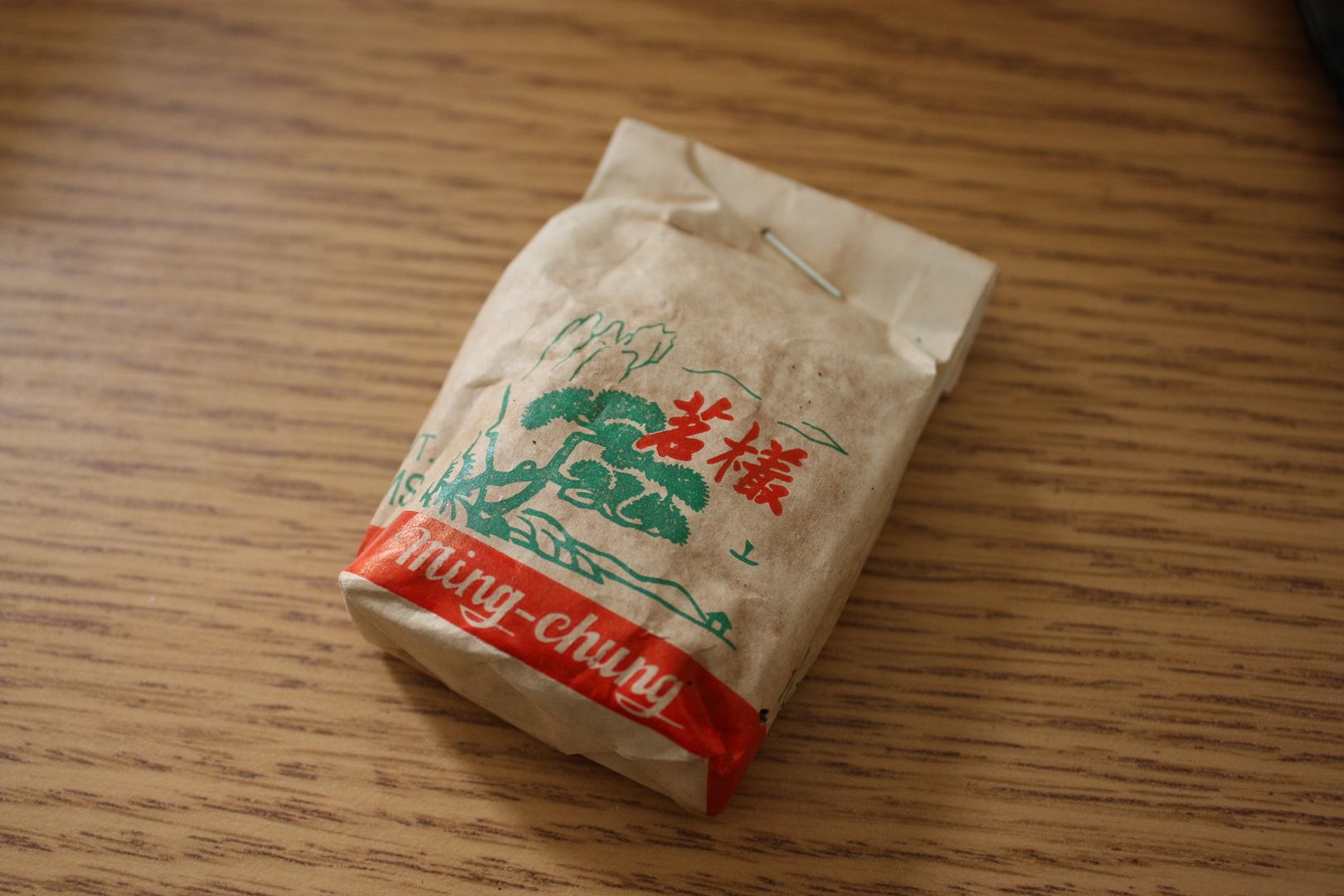
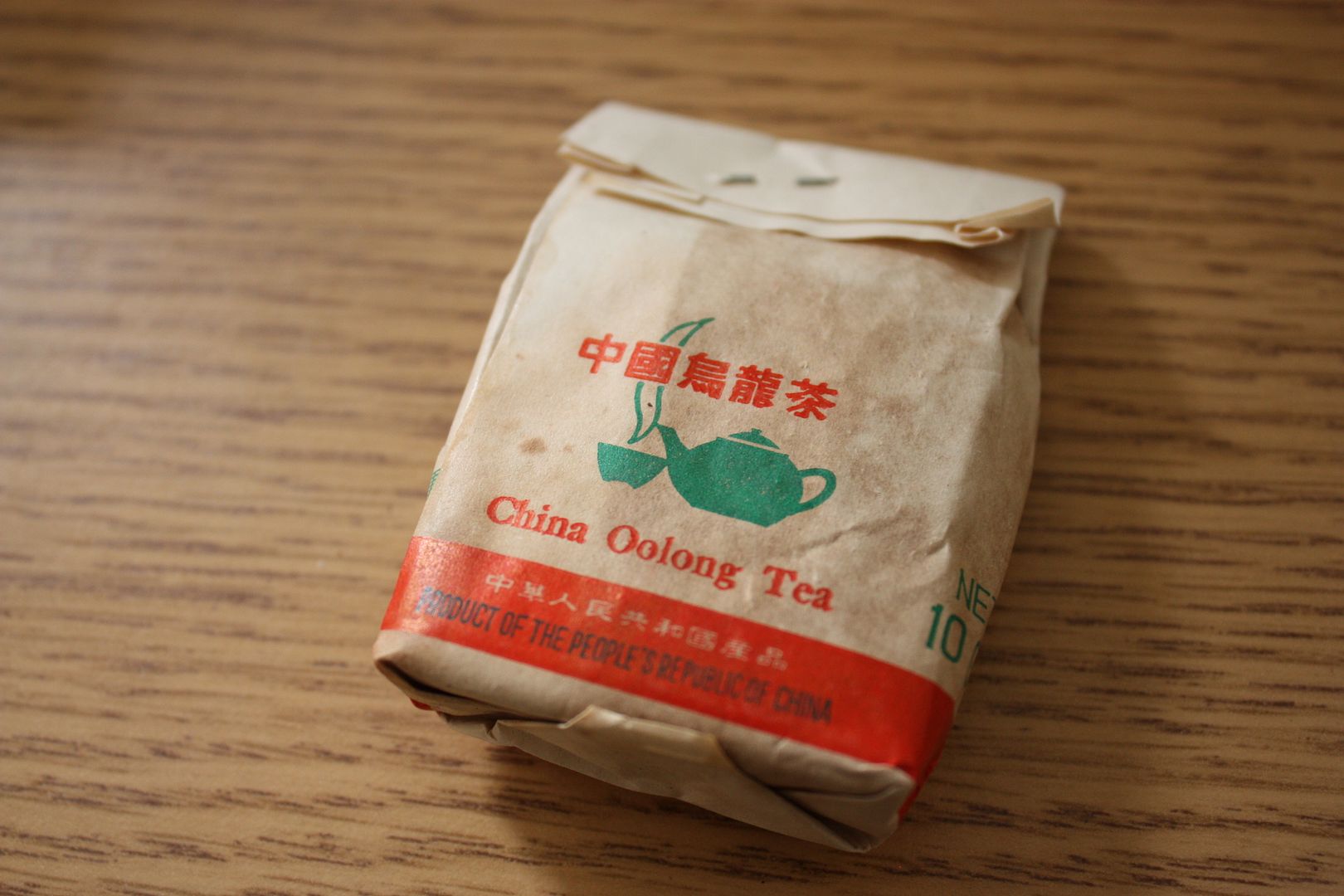
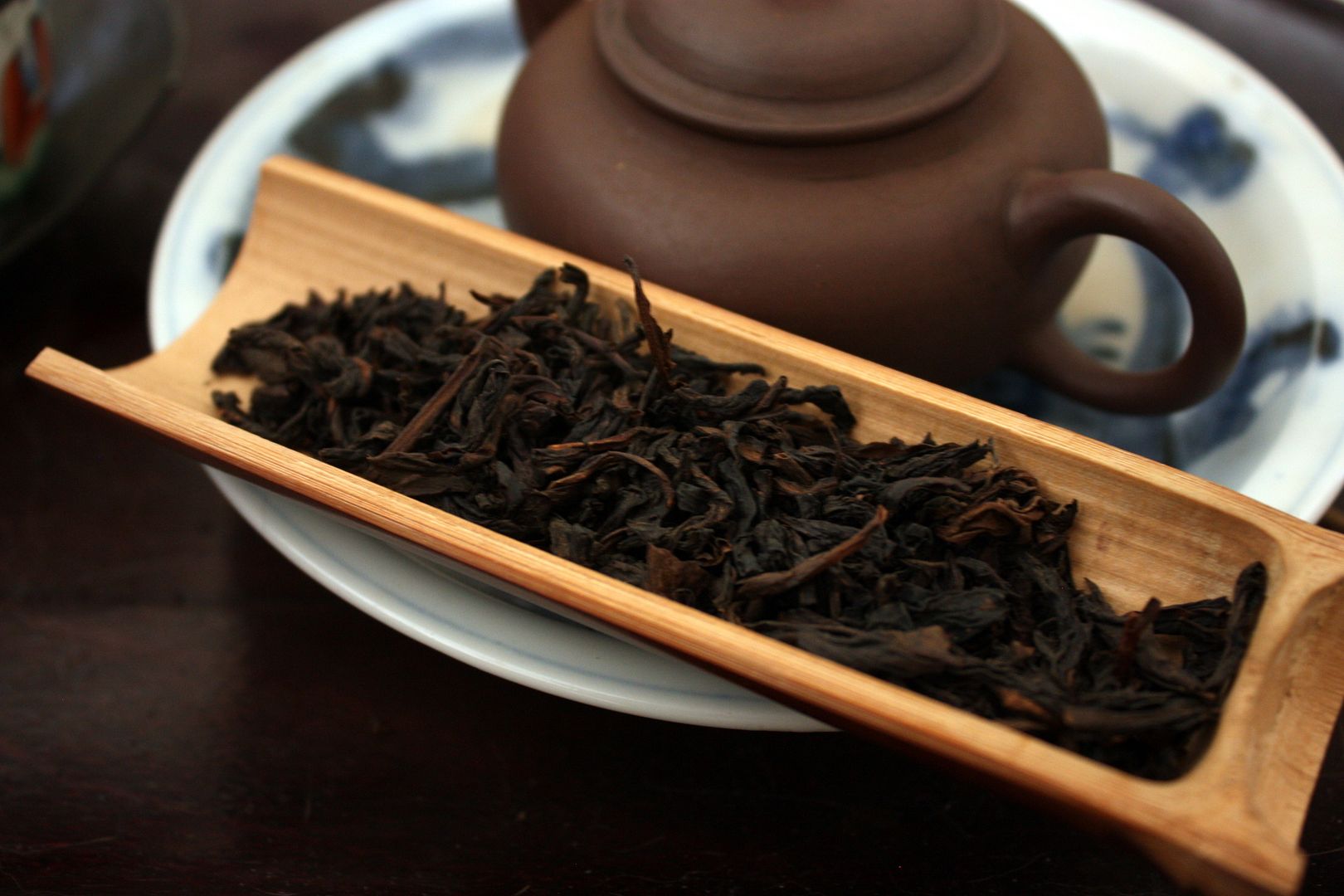
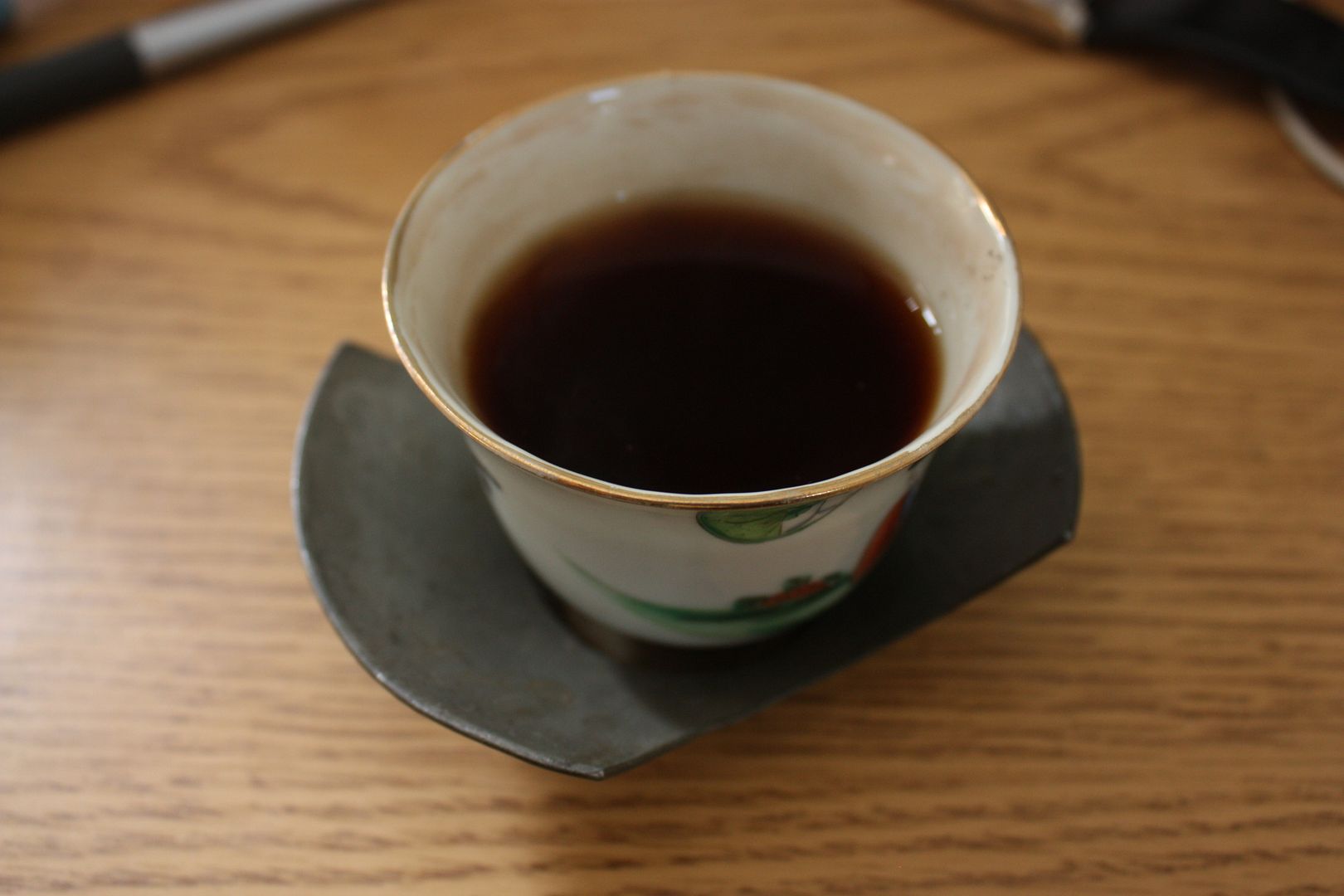
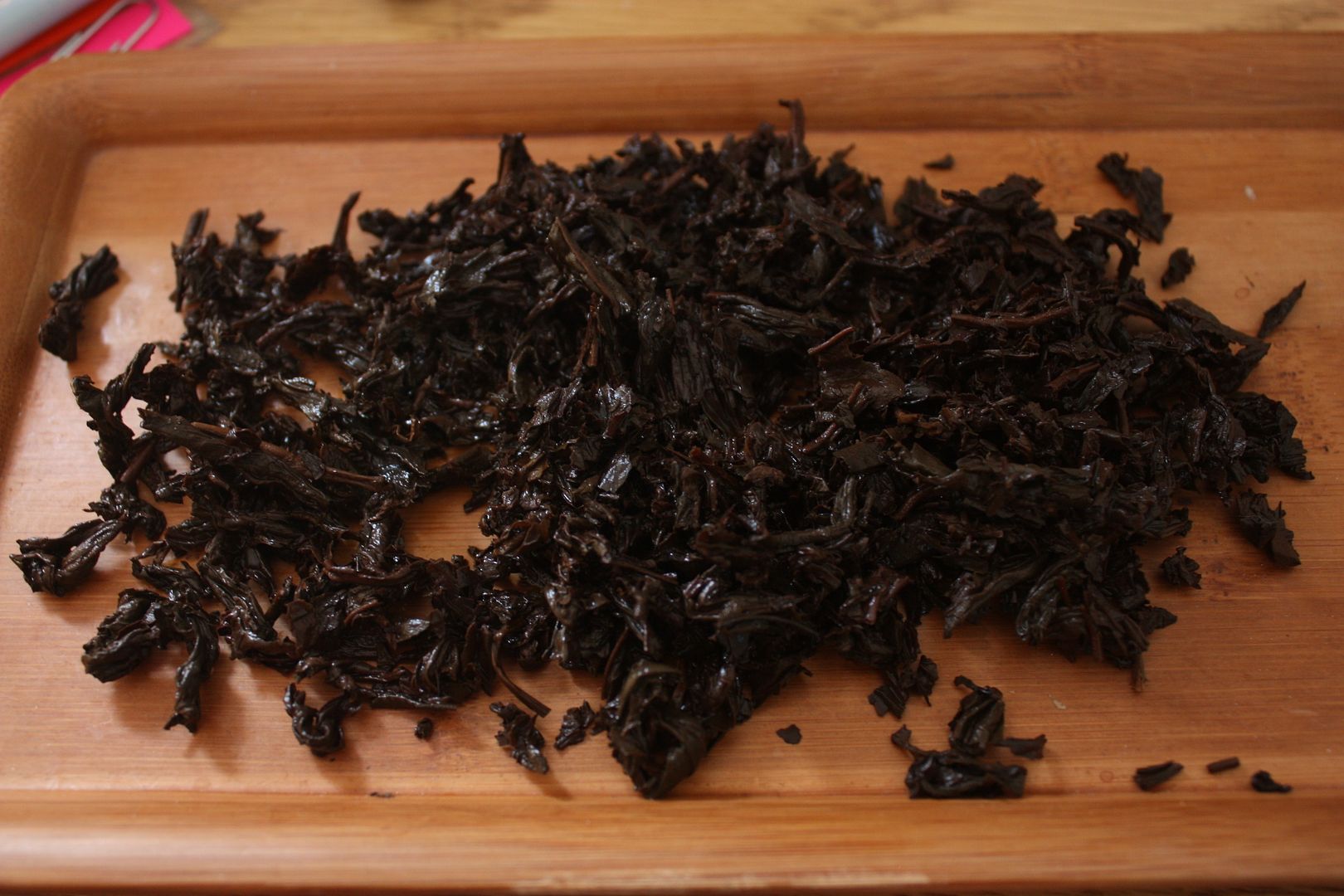
 RSS - Posts
RSS - Posts
8 responses so far ↓
ABx // April 10, 2011 at 12:00 am |
The bush is so famous that they don’t even need to mention its name!
gingko // April 10, 2011 at 12:31 am |
I love those nostalgia old packages. A friend sent me a small pack of Tie Luo Han of 20 years old. I am still admiring the paper pack and haven’t opened it yet.
I also got some “1990 wuyi” from a collector in Xiamen. It seems that before Wuyi got popular in a broader market, a lot of these products not sold specifically in categories. Probably many of them are tea blended with shui xian and rou gui, and possibly others.
MarshalN // April 10, 2011 at 10:59 am |
Yeah, the dominant taste in this seems to be shuixian, but I wouldn’t rule out it being a mix of various things. It’s a little hard to judge because I only had one sitting with it, and it has all kinds of other flavours from the age.
ABx // April 12, 2011 at 10:07 pm |
Can you tell from the spent leaf?
MarshalN // April 12, 2011 at 10:09 pm |
It’s quite chopped up, hard to say
Lew Perin // April 10, 2011 at 3:33 pm |
What do you make of the unusual characters used to “spell” Ming Cong in the first photo, especially the Ming character, which means “tea leaves”, not “famous”?
MarshalN // April 10, 2011 at 5:12 pm |
Indeed, the character used is unusual. I think here the best translation is just “tea bush”.
Ben // April 11, 2011 at 11:06 am |
Yummy, I love aged yan cha. I have some 1990ish Tie Luo Han that comes in similar paper wrappers. Not so much sourness, but a great medicinal taste that evolves over the brewing sessions. It often seems to me that aged oolong can’t go quite the distance (in terms of numbers of infusions) as aged puerh, but I doubt there’s a rule about that…
Ben M